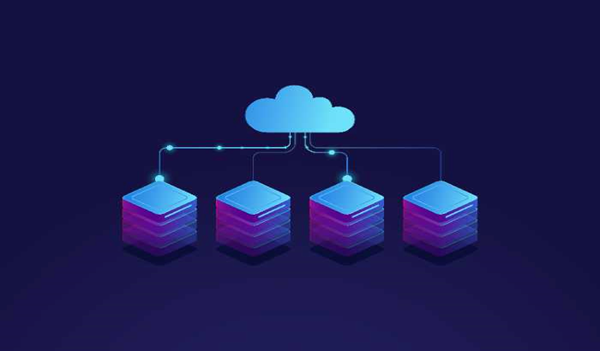Top 10 Databases for Web Applications | MySQLDesigners
Top 10 Databases for Web Applications
Database selection is an important task for web application developers. The right database can make all the difference in the performance and scalability of an application. In this blog post, we will look at five different databases which are commonly used for web applications. We will evaluate each database based on its features and performance. We will also discuss some of the pros and cons of each database. By the end of this blog post, you should have a good understanding of which database is best suited for your needs.

1.MySQL
MySQL is a popular database choice for many web applications. It is open source and has a wide variety of features. MySQL is a good choice for small to medium-sized applications. It is not recommended for large-scale applications.
Pros:
– MySQL is open-source and free to use.
– It has a wide variety of features.
– MySQL is easy to set up and use.
Cons:
– MySQL does not scale well for large applications.
– It can be difficult to administer at times.
2.PostgreSQL
PostgreSQL is another popular database for web applications. It is also open source and has many features. PostgreSQL is a good choice for small to medium sized applications. It can scale to larger applications, but may not be as fast as other databases.
Pros:
– PostgreSQL is open source and free to use.
– It has a wide variety of features.
– PostgreSQL can scale to larger applications.
Cons:
– PostgreSQL may not be as fast as other databases for large applications.
– It can be difficult to administer at times.
3.MongoDB
MongoDB is a popular document-oriented database. It is open-source and has many features. MongoDB is a good choice for medium to large-sized applications. It can scale to very large applications, but may not be as fast as other databases.
Pros:
– MongoDB is open source and free to use.
– It has a wide variety of features.
– MongoDB can scale to very large applications.
Cons:
– MongoDB may not be as fast as other databases for large applications.
– It can be difficult to administer at times.
4. Oracle
Oracle Database is a popular choice for enterprise applications. It is not open-source, but it has a wide variety of features. Oracle Database is a good choice for large-scale applications. It can scale to very large applications and is very fast.
Pros:
– Oracle Database has a wide variety of features.
– It can scale to very large applications.
– Oracle Database is very fast.
Cons:
– Oracle Database is not open source and can be expensive to use.
– It can be difficult to administer at times.
5.DB2
DB2 is another popular choice for enterprise applications. It is not open source, but it has a wide variety of features. DB2 is a good choice for large scale applications. It can scale to very large applications and is very fast.
Pros:
– DB2 has a wide variety of features.
– It can scale to very large applications.
– DB2 is very fast.
Cons:
– DB2 is not open source and can be expensive to use.
– It can be difficult to administer at times.
6. Microsoft SQL Server
Microsoft SQL Server is a popular choice for enterprise applications. It is not open-source, but it has a wide variety of features. Microsoft SQL Server is a good choice for large-scale applications. It can scale to very large applications and is very fast.
Pros:
– Microsoft SQL Server has a wide variety of features.
– It can scale to very large applications.
– Microsoft SQL Server is very fast.
Cons:
– Microsoft SQL Server is not open source and can be expensive to use.
– It can be difficult to administer at times.
7. Redis
Redis is an open-source, in-memory data structure store. It can be used as a database, cache, and message broker. Redis is a good choice for small to medium-sized applications. It is not recommended for large-scale applications.
Pros:
– Redis is open source and free to use.
– It has a wide variety of features.
– Redis is easy to set up and use.
Cons:
– Redis does not scale well for large applications.
– It can be difficult to administer at times.
8. SQLite
SQLite is a popular choice for embedded applications. It is open source and has many features. SQLite is a good choice for small to medium-sized applications. It can scale to larger applications, but may not be as fast as other databases.
Pros:
– SQLite is open source and free to use.
– It has a wide variety of features.
– SQLite can scale to larger applications.
Cons:
– SQLite may not be as fast as other databases for large applications.
– It can be difficult to administer at times.
9.DynamoDB
Amazon’s DynamoDB is a nonrelational best database. It’s a serverless database for mobile apps that automatically scales up and down while also backing up your data. DynamoDB is a popular choice for web and mobile applications. It is a fully managed, scalable, and secure database service. DynamoDB is a good choice for applications that require high performance and availability.
Pros:
– DynamoDB is a fully-managed database service.
– It is scalable and can handle large amounts of data.
– DynamoDB is secure and has multiple features for security.
Cons:
– DynamoDB can be expensive to use.
– It can be difficult to administer at times.
10. Cassandra
Cassandra is an open-source, distributed database management system designed to handle large amounts of data across many commodity servers, providing high availability with no single point of failure.
Pros:
– Cassandra is open source and free to use.
– It is very scalable.
– Cassandra has high availability with no single point of failure.
Cons:
– Cassandra can be difficult to administer at times.
– It may not be as fast as other databases.

If you need help choosing the right database for your web application, contact us today and we’ll help you make the best decision for your specific needs. today. We can help you evaluate your options and make the best choice for your needs.
